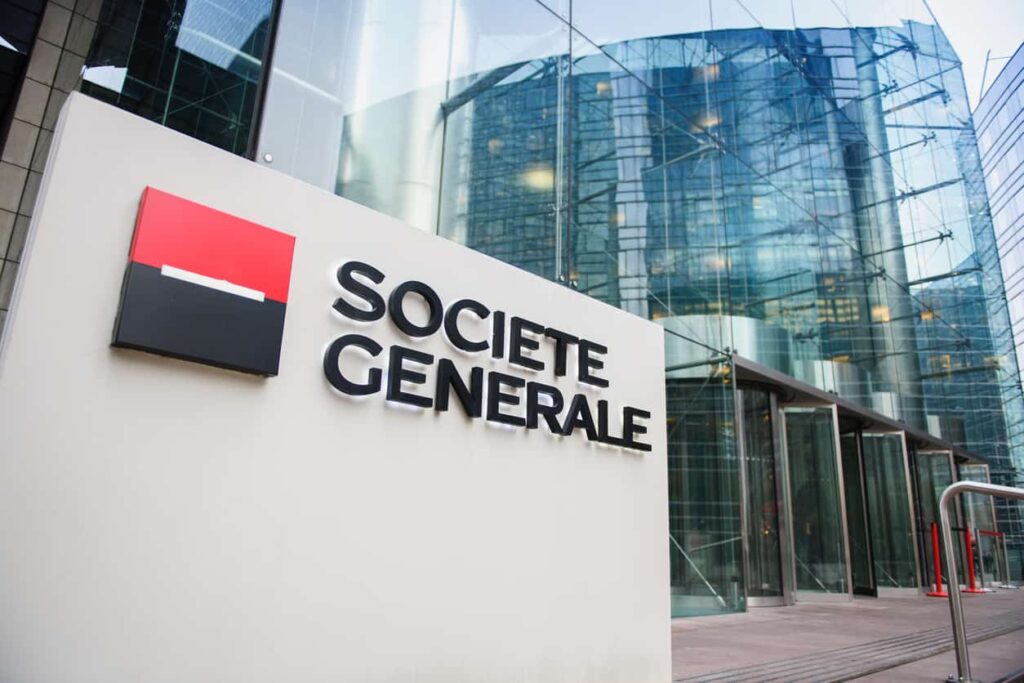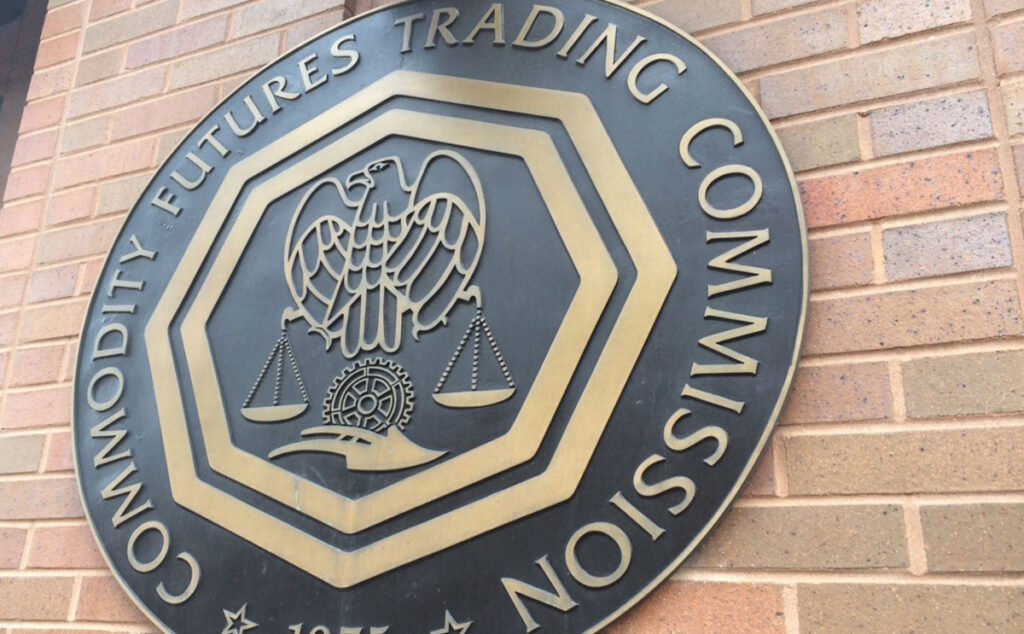Russia’s pioneering cross-border payment platform, Exved, has officially announced its launch, ushering in a new era for local legal entities to conduct international settlements using cryptocurrencies.
Describing itself as a “digital counterparty search system,” Exved unveiled its groundbreaking business-to-business solution on December 7th.
This development empowers Russian importers and exporters to streamline foreign exchange operations and international economic activities.
The Exved platform offers the capability to execute cross-border transactions employing the Tether stablecoin, alongside the offshore ruble and the United States dollar, as confirmed in their announcement.
Crucially, Exved places a strong emphasis on compliance with Anti-Money Laundering and Counter-Terrorist Financing measures, exclusively catering to legal entities.
Their overarching mission is to enable Russian legal entities to engage in cross-border payments sans intermediaries, all while benefiting from the most competitive market rates.
READ MORE: ORDI Token Soars Past $1 Billion Market Cap, Setting New Milestone for BRC-20 Tokens
Exved’s launch has enjoyed significant support from key industry partners, including InDeFi Bank, notable for initiating the decentralized crypto ruble project in 2022.
Sergey Mendeleev, the Co-founder and CEO of InDeFi Smart Bank, highlighted that Exved’s internal mechanics have undergone rigorous testing and received approval from both the Bank of Russia and the Federal Financial Monitoring Service of the Russian Federation.
Mendeleev expressed that Exved, primarily a private initiative, aims to educate individuals about the possibility of making payments at rates as low as 2-3% rather than the typical 6-7%.
It also offers specific mechanisms for implementing payment requests, fostering financial efficiency and transparency in cross-border transactions.
This milestone aligns with the Russian central bank and the Ministry of Finance’s historic agreement in September 2022, which permitted cross-border settlements using cryptocurrencies.
As the crypto landscape continues to evolve, Exved’s innovative platform promises to play a pivotal role in reshaping the way Russian businesses engage in international trade and payments.
In summary, Exved’s launch marks a significant step forward in the world of cross-border payments, opening up exciting possibilities for Russian legal entities to engage in cryptocurrency-based international settlements with unparalleled ease and cost-efficiency.
PayPal’s recent launch of its native stablecoin, PayPal USD (PYUSD), has stirred significant debate within the cryptocurrency industry regarding its potential impact on payments and broader crypto adoption.
While this move appears to be a significant step toward integrating cryptocurrencies into traditional finance, some industry experts advise exercising caution due to the potential challenges and limitations that could impede widespread adoption.
PYUSD is designed to serve as a bridge between fiat and digital currencies, catering to consumers, merchants, and developers.
PayPal CEO Dan Schulman emphasized the necessity for a stable digital-fiat conduit to facilitate various transactions, including payments, fund transfers between PayPal and compatible external wallets, and crypto conversions.
The coin’s primary goal is to reduce payment frictions in virtual environments, expedite value transfers, and offer a safer alternative to the volatile nature of most cryptocurrencies.
As an ERC-20 token on the Ethereum blockchain, PYUSD is compatible with prevalent exchanges, wallets, and Web3 applications, with plans to expand its availability to Venmo users.
However, achieving widespread adoption across PayPal’s vast user base in 200 markets remains uncertain.
PYUSD is subject to regulatory oversight by the New York State Department of Financial Services, with Paxos set to provide monthly reserve reports and third-party attestations of reserve assets’ values, enhancing transparency.
Beyond introducing PYUSD, PayPal continues its efforts to educate consumers and merchants about digital currencies, complementing its existing services that allow customers to transact in select cryptocurrencies.
The introduction of PYUSD signals a significant milestone, with PayPal becoming the largest payments company to embrace blockchain technology in a way that sets new standards and utility levels for stablecoins.
READ MORE: Phoenix Group Makes Historic Debut as First Crypto Mining Firm on Abu Dhabi Securities Exchange
This move sends a clear message that stablecoins are entering the mainstream, extending the benefits of blockchain technology to everyday transactions.
Some industry experts are enticed by the potential for PayPal’s stablecoin to be integrated into multiple systems, leading to the introduction of more use cases for various digital assets and cryptocurrencies.
However, they acknowledge the associated risks and the need for increased regulation as stablecoins gain prominence.
PayPal’s entry into the stablecoin space could serve as a catalyst for other fintech firms to follow suit, setting a precedent for proactive corporate involvement in Web3 innovation.
However, it also brings the potential for greater regulatory scrutiny and compliance requirements.
In the context of global financial inclusion, decentralized finance (DeFi) holds promise for unbanked and underbanked populations, providing access to financial services.
While DeFi faces regulatory challenges, it could potentially benefit from PayPal’s stablecoin by leveraging PayPal’s familiarity to facilitate the transition from traditional finance to DeFi.
As of now, PYUSD remains centralized and has not ventured into the DeFi space. Its current ranking on CoinMarketCap is 242, indicating that it has room for growth and adoption.
The crypto community continues to assess both the positive and negative aspects of PayPal’s stablecoin, recognizing its potential to bridge financial systems while also acknowledging concerns about regulatory oversight and adoption challenges.
The future impact of PYUSD on the financial ecosystem remains uncertain, and further developments are awaited.
ARK Invest, a prominent player in the race to launch a Bitcoin exchange-traded fund (ETF) in 2024, is making substantial gains from its substantial holding of Coinbase stock.
On December 5th, ARK unloaded a significant portion of its Coinbase shares, totaling 237,572, across its three funds, as per a trade notification reported by Cointelegraph.
This move coincided with Coinbase’s stock closing at $140 per share, resulting in proceeds of at least $33 million.
The lion’s share of the Coinbase shares, precisely 201,711, were divested from the ARK Innovation ETF (ARKK).
The ARK Fintech Innovation ETF (ARKF) and the ARK Next Generation Internet ETF (ARKW) also participated in the sale, disposing of 28,535 and 7,326 shares, respectively.
Coinbase, the cryptocurrency exchange, has witnessed its stock reach new annual highs, riding the bullish wave of the crypto market, with a remarkable 280% year-to-date surge, according to TradingView data.
This rally gained further momentum following the legal issues faced by rival exchange Binance and its former CEO Changpeng Zhao, who pleaded guilty to money laundering and sanctions violations in the United States in November.
On December 5th, Coinbase’s stock reached an all-time high of over $147.4, a level not seen since April 2022.
READ MORE: Thirdweb Identifies Critical Security Vulnerability in Web3 Smart Contracts
Over the past 30 days, the stock has gained nearly 70%, according to TradingView.
ARK’s recent sale of Coinbase shares ranks as one of its most substantial daily sales in 2023, trailing only behind the massive 478,356 shares sold on July 14 and the 248,838 shares sold on July 17 when Coinbase was trading at approximately $105 per share.
In addition to its aggressive Coinbase selling, ARK has also divested 168,127 shares of Grayscale’s Bitcoin Trust (GBTC), which, at the closing price of $35, yielded $5.9 million, according to TradingView.
This selling of GBTC shares began on October 23, 2023, amid Bitcoin’s climb toward $34,000.
Despite the recent reduction in Coinbase holdings, ARK still retains a significant number of shares in the exchange.
Coinbase constitutes more than 13% of the net assets of the ARKF ETF, with a value of nearly $135 million as of December 5th.
Additionally, Coinbase accounts for 11.72% and 11.64% of the ARKW ETF and the ARKK ETF, respectively, making it the largest asset in both portfolios.
While ARK has been shedding Coinbase shares, it has concurrently been actively acquiring shares in other crypto-related companies, including Robinhood.
Moreover, the firm has persisted in purchasing shares of SoFi Technologies despite the announcement of the forthcoming termination of its crypto trading services.
In a groundbreaking development, a never-before-heard studio recording featuring a young Michael Jackson has emerged from the shadows after being concealed for over half a century.
This historical revelation is set to captivate music enthusiasts on December 7th, as it is unleashed in the form of a “digital vinyl” via a blockchain-based platform.
The track, dubbed “Big Boy (One-Derful Version),” will be digitally unveiled through the innovative blockchain music platform, Anotherblock.
Listeners will have the unique opportunity to access this piece of musical history, accompanied by images of the original master tape and song components.
This exclusive release will be available for a limited four-day window, as both an open edition and a limited edition collectible.
Harking back to July 13, 1967, this recording transports us to the moment when an eight-year-old Michael Jackson, joined by his brothers, embarked on their maiden studio session at One-Derful in Chicago.
The release of this long-lost treasure is the result of a collaborative effort between Recordpool, the custodian of this rare recording, and the Swedish blockchain-based music and royalty marketplace, Anotherblock.
READ MORE: Phoenix Group Makes Historic Debut as First Crypto Mining Firm on Abu Dhabi Securities Exchange
Anotherblock has previously collaborated with renowned artists such as Rihanna, The Weeknd, and Justin Bieber.
Michel Traore, the CEO and co-founder of the company, emphasized the significance of this release by stating that presenting it as a “digital vinyl on-chain” enables the creation of narratives and communities around the song, elevating it beyond mere commodity status.
Traore further added, “Some songs, and this one in particular, deserve a special home where they won’t disappear in the sea of hundreds of thousands of tracks released every day. This new format gives us a chance to craft more stories around the music.”
This release signifies a revolution in the realm of “digital vinyl,” prompting excitement within the digital ownership landscape of the music industry.
Katherine Jackson, Michael’s mother, echoed this sentiment and expressed her enthusiasm, stating that the “recordings of our musical heritage find a new rhythm for the digital age.
It is a testament that the Jacksons’ story, just like our music, remains timeless.”
The emergence of this treasured recording not only delights fans but also paves the way for a new era in music appreciation and ownership.
Société Générale, France’s third-largest bank, has taken a significant step into the world of stablecoins by introducing its native euro-pegged stablecoin, marking a notable entry for a European banking giant into this emerging market.
The stablecoin, named EUR CoinVertible (EURCV), is set to make its debut on Bitstamp, a Luxembourg-based cryptocurrency exchange, as reported by the Financial Times.
What sets EURCV apart is its full backing by the euro, providing bank customers with a secure means to engage in the digital asset arena.
This stablecoin will cater to a wide range of customers and can be used for trading purposes.
Jean-Marc Stenger, CEO of Société Générale Forge, emphasized the bank’s role in the ever-evolving cryptocurrency space and underscored the need for a stablecoin denominated in euros.
While the stablecoin market has primarily been dominated by USD-pegged stablecoins like Tether and Circle’s USD Coin, Société Générale’s move is seen as more than just a novelty by Stenger.
Stenger pointed out that EURCV has been strategically developed to facilitate the settlement of trades involving digital bonds, funds, and various assets.
READ MORE: Thirdweb Identifies Critical Security Vulnerability in Web3 Smart Contracts
He also highlighted that the versatility of this stablecoin extends beyond Société Générale’s platform, making it accessible to a broader spectrum of financial service providers.
One notable application of EURCV is its use by Axa Investment Managers for investing in the bank’s digital green bond. This bond has a value of 10 million euros (approximately $11 million) and a three-year maturity period.
Société Générale’s foray into the euro-pegged stablecoin market holds significant implications for the European financial landscape, especially with the impending arrival of the European Union’s Markets in Crypto-Assets Regulation in 2024.
It’s important to note that Société Générale has not been a newcomer to the cryptocurrency domain; the bank has actively offered cryptocurrency exposure to its customer base for several years.
In fact, back in July, Société Générale’s crypto subsidiary, Forge, achieved a milestone by becoming the first company to secure the highest access license for providing cryptocurrency services in France.
In conclusion, the introduction of EUR CoinVertible by Société Générale signifies a noteworthy development in the stablecoin market, particularly within the European banking sector.
This move aligns with the broader trend of traditional financial institutions embracing digital assets and blockchain technology, demonstrating the ongoing transformation of the financial industry.
The ORDI token, built on the Bitcoin Ordinals protocol, has achieved a remarkable milestone by becoming the first BRC-20 token to surpass a market capitalization of $1 billion.
This achievement comes on the heels of its astounding triple-digit gains in both monthly and weekly percentages.
As of December 5th, ORDI reached an all-time high, trading at over $65, marking an impressive 850% surge from its November 5th value of approximately $6.80, as reported by CoinGecko.
Over the course of the last seven days alone, ORDI has witnessed a remarkable 216% increase in value.
This sudden and significant uptick in the price of ORDI propelled it into the exclusive club of BRC-20 tokens with a $1 billion market capitalization.
Presently, at the time of this report, its market capitalization stands at $1.3 billion, although it has slightly retreated from its peak and is currently trading below $61.
Even at this level, it represents an extraordinary 2,000% increase from its previous all-time low of $2.86 on September 11th.
READ MORE: Ho-ho-ho! BetFury Holds $800 000 Xmas Event!
Bitcoin Ordinals, introduced by Casey Rodarmor in January, introduced a novel capability to the Bitcoin blockchain: the ability to inscribe content, including nonfungible tokens (NFTs) and entirely new tokens utilizing the BRC-20 token standard.
The concept of Ordinals-inscribed assets rapidly gained traction within the broader blockchain community.
After a brief lull in inscription activity in October, Binance’s decision to list ORDI on November 7th reignited enthusiasm for these assets.
Data from Dune Analytics reveals that since the protocol’s inception, more than 48 million Ordinals assets have been inscribed, resulting in over $146.9 million in fees paid to the Bitcoin network.
Notably, on November 20th, transaction fees on the Bitcoin network surpassed those of Ethereum, primarily due to a rush to inscribe new NFTs and BRC-20 tokens.
Furthermore, on November 17th, the Ordinals-based project Taproot Wizards announced a successful $7.5 million seed round, underlining the growing interest and investment in the Bitcoin Ordinals ecosystem.
The remarkable rise of ORDI underscores the potential of innovative blockchain protocols to disrupt and reshape the digital asset landscape.
Four U.S. Senators have penned a letter to Federal Trade Commission (FTC) Chair Lina Khan, seeking information about the FTC’s initiatives to combat the use of artificial intelligence (AI) in scams targeting older Americans.
Senators Robert Casey, Richard Blumenthal, John Fetterman, and Kirsten Gillibrand emphasized the importance of addressing AI-enabled fraud effectively.
In their correspondence, the senators emphasized the necessity of comprehending the scope of the threat posed by AI-driven scams in order to devise suitable countermeasures.
They requested the FTC to share insights into its efforts to collect data on AI-related scams and ensure their accurate representation in the Consumer Sentinel Network (Sentinel) database.
Consumer Sentinel serves as the FTC’s investigative cyber tool, assisting federal, state, and local law enforcement agencies in combating various scams.
To gain a comprehensive understanding of the FTC’s approach, the senators posed four specific questions regarding AI scam data collection practices.
First, they inquired about the FTC’s capabilities in identifying AI-powered scams and appropriately tagging them in the Sentinel database.
They also sought clarification on whether the FTC could recognize generative AI scams that may go unnoticed by victims.
READ MORE: BlackRock Secures $100,000 Seed Investment for Bitcoin ETF as Approval Nears
Furthermore, the lawmakers requested a detailed breakdown of Sentinel’s data to identify the popularity and success rates of various scam types.
Lastly, they inquired whether the FTC employs AI in processing the data collected by Sentinel.
Notably, Senator Casey, in addition to his role in this inquiry, serves as the chairman of the Senate Special Committee on Aging, which focuses on issues affecting older Americans.
In related news, on November 27, the United States, along with the United Kingdom, Australia, and 15 other nations, collectively released global guidelines aimed at safeguarding artificial intelligence (AI) models from tampering.
The guidelines underscore the importance of ensuring AI models are “secure by design.”
Key recommendations include closely monitoring the AI model’s infrastructure, both before and after release, and providing cybersecurity training to staff.
However, it is worth noting that these guidelines do not address potential controls related to image-generating models, deepfakes, data collection methods, or their use in training AI models.
As AI technology continues to evolve, policymakers and regulators are actively exploring ways to mitigate associated risks and protect vulnerable populations.
Riot Blockchain, a prominent Bitcoin mining company, has announced a significant expansion of its mining operations in preparation for the Bitcoin halving event scheduled for April 2024.
The company is acquiring 66,560 mining rigs from MicroBT, a leading manufacturer, marking one of the most substantial increases in hash rate capacity in Riot’s history.
This substantial purchase amounts to $290.5 million, averaging around $4,360 per machine.
The option to purchase these additional miners was part of Riot’s initial agreement with MicroBT when it initially procured 33,280 machines back in June.
This arrangement has been revised, allowing Riot the option to acquire up to 265,000 more miners under the same terms as the recent order.
Riot’s CEO, Jason Les, referred to this purchase as the “largest order of hash rate” in the company’s history and anticipates that the updated agreement will further enhance Riot’s mining performance.
Of the newly acquired miners, 72% will be MicroBT’s latest model, the M66S, boasting an impressive hash rate of 250 terahashes per second (TH/s).
The remaining machines will include the M66 (14,770) and M56S++ (3,720) models, adding a total of 18 exahashes per second (EH/s) to Riot’s mining operations.
READ MORE: Ben Zhou Addresses Crypto Regulation As Bybit Celebrates 5-Year Anniversary
Riot plans to deploy the first batch of 33,280 miners from the June purchase in the first quarter of 2024, while the newly acquired 66,560 miners will be deployed in the second half of the same year.
The company expects its self-mining hash rate capacity to reach 38 EH/s once all 99,840 rigs are fully operational, which they anticipate happening in the second half of 2025.
Riot’s motivation for this significant expansion is primarily attributed to the upcoming Bitcoin halving event in April 2024, which is expected to impact Bitcoin mining rewards.
This news has driven positive investor sentiment, with Riot’s stock surging nearly 9% on December 4, leading to an impressive year-to-date growth of over 345% in 2023.
In other developments in the Bitcoin mining industry, CleanSpark reported mining 666 BTC in November, showcasing a 5.2% increase from October and a substantial 24% growth from the same period in 2022.
CleanSpark attributes this growth partly to rising transaction fees and the growing interest in Bitcoin’s various use cases.
TeraWulf, listed on Nasdaq, mined 323 BTC in November, a 3% increase from October, primarily driven by higher network transaction fees.
Additionally, Hut 8 completed its merger with Bitcoin Corp to form Hut 8 Corp, commencing trading on Nasdaq and the Toronto Stock Exchange on December 4, albeit with a less-than-ideal debut performance, experiencing a notable decline in its stock price on the same day.
Bitcoin futures open interest on the global derivatives giant, the Chicago Mercantile Exchange (CME), has surged to $5.2 billion, just $200 million shy of its previous all-time high in late October 2021.
Over the last 30 days, open interest in CME’s Bitcoin futures has grown from $3.63 billion to $5.20 billion, mirroring Bitcoin’s 26% gain during the same period, with the cryptocurrency currently trading at slightly above $44,000.
Between October 1 and 21, 2021, CME’s Bitcoin futures open interest saw a substantial increase from $1.46 billion to $5.45 billion.
This rapid growth in open interest coincided with a significant price surge for Bitcoin.
IG Australia analyst Tony Sycamore noted that the surge in open interest indicates renewed interest in Bitcoin, but it does not provide insight into the positioning of CME traders.
Sycamore referred to CME’s November 28 report to the United States Commodities Futures Trading Commission (CFTC), which revealed that “big players” on the platform were net short at the time, with 20,724 short positions compared to 18,979 long positions.
READ MORE: Thirdweb Identifies Critical Security Vulnerability in Web3 Smart Contracts
Sycamore emphasized that it’s crucial to wait for CME’s upcoming report on December 12 to determine the current positioning of these major players.
He stated, “What we can’t see right now is whether the big players have gone from a net short to a net long.
If we saw the market getting extremely long, you’d be very worried about a snapback. The market that we could see last week was short, so I don’t think we’re at that point yet.”
The recent surge in Bitcoin’s price is not solely due to speculation regarding the SEC’s potential approval of spot exchange-traded fund (ETF) products, according to Sycamore.
He believes that other factors, such as the crypto market’s connection to the macroeconomic environment, play a more significant role in driving price action.
This includes the Federal Reserve’s signals to begin cutting interest rates, which can impact Bitcoin’s performance.
In November, CME overtook Binance in Bitcoin futures open interest, signaling increased interest from traditional financial institutions in crypto products.
While many analysts anticipate a spot ETF approval to lead to a significant price increase for Bitcoin, some are cautious, predicting a “sell the news” event in the days and weeks following such an approval.
Smart contract development firm Thirdweb recently identified a critical security vulnerability that has the potential to impact a wide range of smart contracts within the Web3 ecosystem.
On December 4th, Thirdweb disclosed this vulnerability, which was found in a commonly used open-source library.
The vulnerability could affect specific pre-built smart contracts, including some developed by Thirdweb itself.
Fortunately, the firm’s investigation revealed that this security flaw has not been exploited yet, providing a limited window of opportunity for Web3 entities to address the issue before any potential security breach occurs.
Thirdweb emphasized the significance of this vulnerability, stating that it could lead to substantial damage if left unaddressed.
The affected pre-built contracts encompass various types, such as DropERC20, ERC721, ERC1155 (across all versions), and AirdropERC20.
Thirdweb promptly alerted users who had deployed its contracts before November 22nd to take independent mitigation steps or utilize tools provided by the company.
Additionally, Thirdweb encouraged developers to assist users in revoking approvals on all affected contracts using the revoke.cash platform.
This measure aims to protect users who choose not to address the contract vulnerability. A developer known as “0xngmi” from DefiLlama supported this approach.
READ MORE: Crypto Hacker Executes $2 Million Heist through Address Poisoning Attacks
Thirdweb has taken proactive steps to address the issue. They have contacted the maintainers of the open-source library responsible for the vulnerability and reached out to other potentially affected teams.
To bolster security, the company has decided to increase its investment in security measures and double bug bounty payouts from $25,000 to $50,000.
They also plan to implement a more stringent auditing process and are offering grants to cover contract mitigations.
In their commitment to resolving the issue and ensuring the security of the Web3 ecosystem, Thirdweb stated, “We understand that this will cause disruption, and we are treating the mitigation of the issue with the utmost seriousness.
We will be offering a retroactive gas grant to cover fees for contract mitigations.”
For security reasons, Thirdweb has not disclosed the full details of the vulnerability. Further inquiries by Cointelegraph were directed to a blog post for additional updates.
It’s worth noting that Thirdweb recently secured $24 million in a Series A funding round, with notable investors including Haun Ventures, Coinbase, Shopify, and Polygon.
The company, known for providing multichain smart contract deployment tools for gaming, minting, marketplaces, and wallets, boasts a user base of over 70,000 developers who utilize its services on a monthly basis within the Web3 space.













